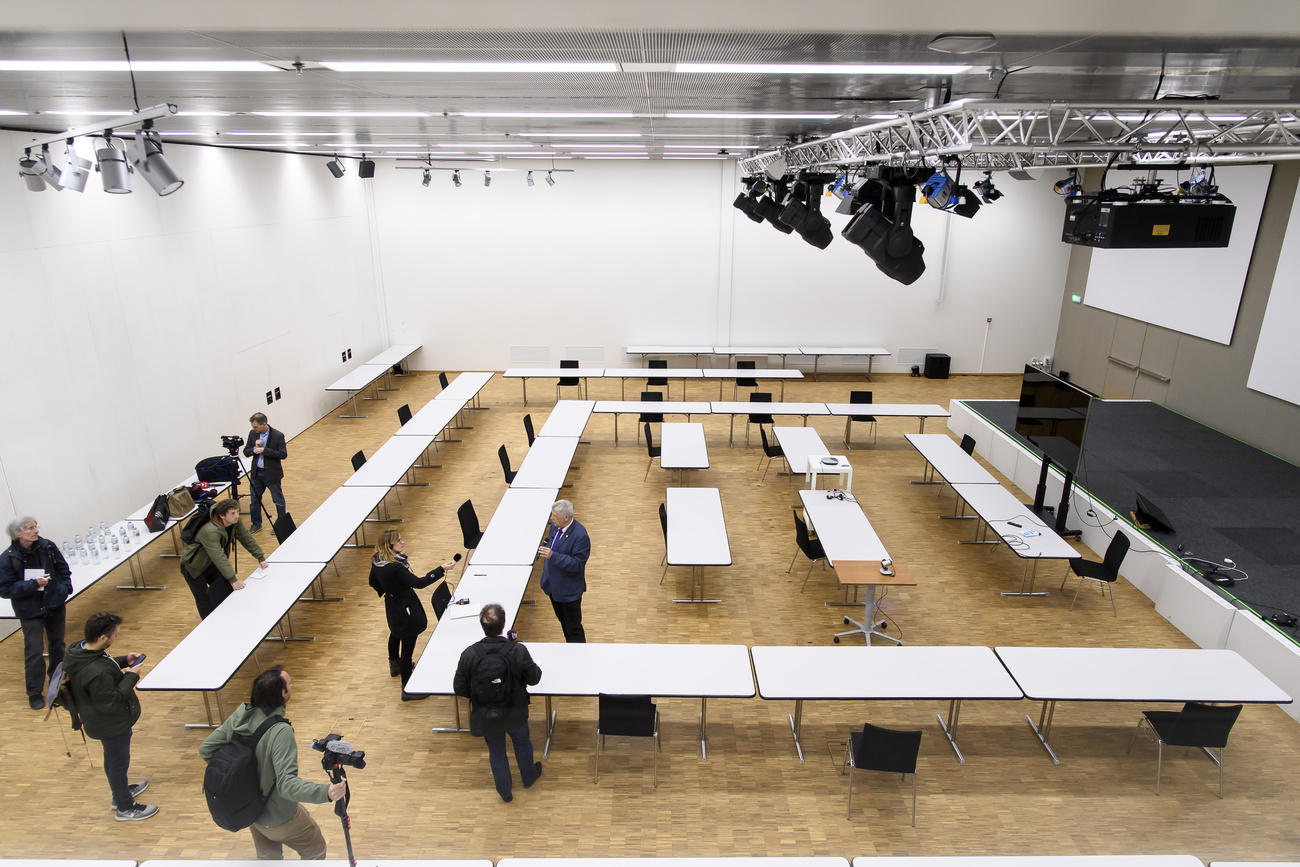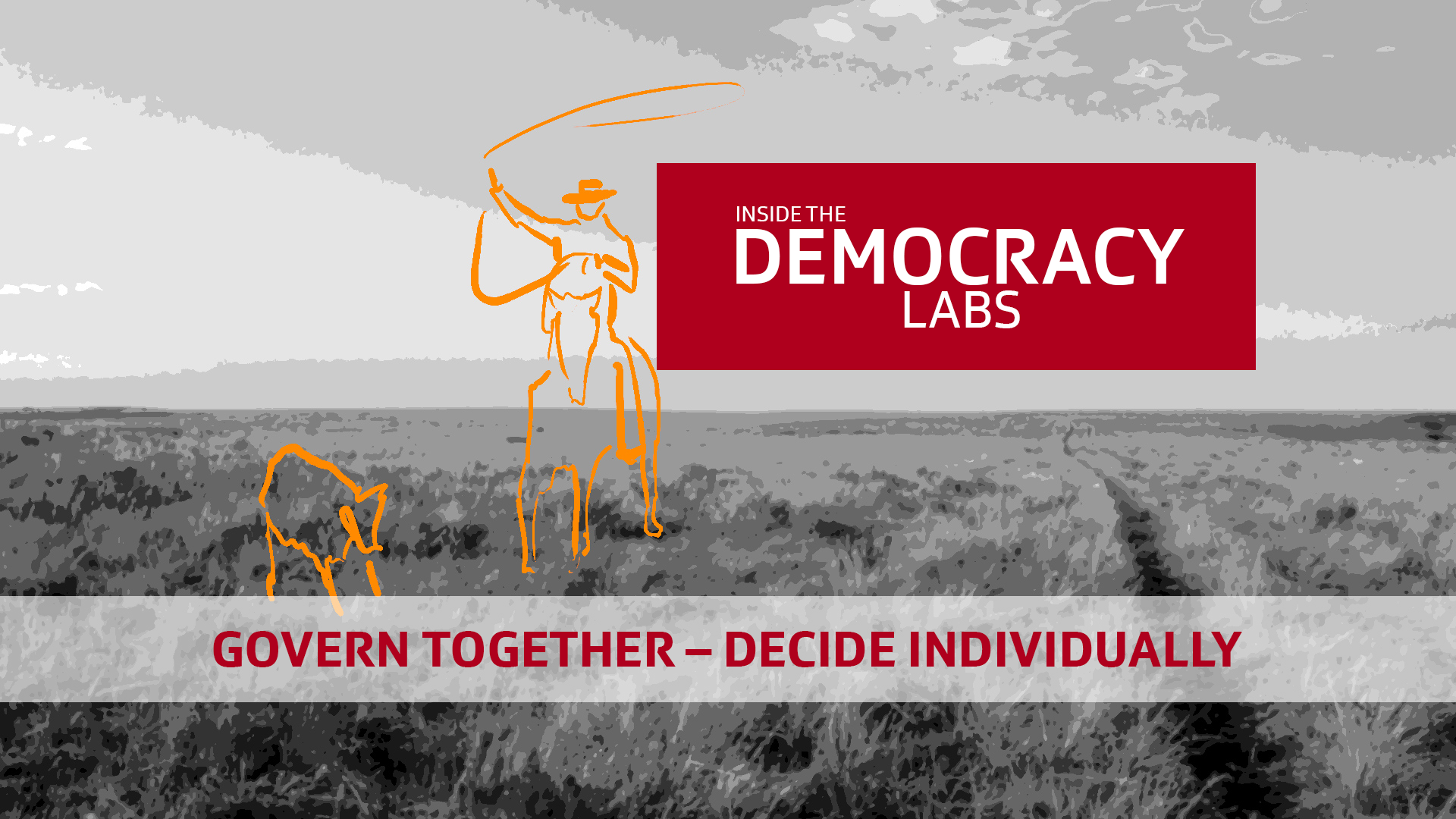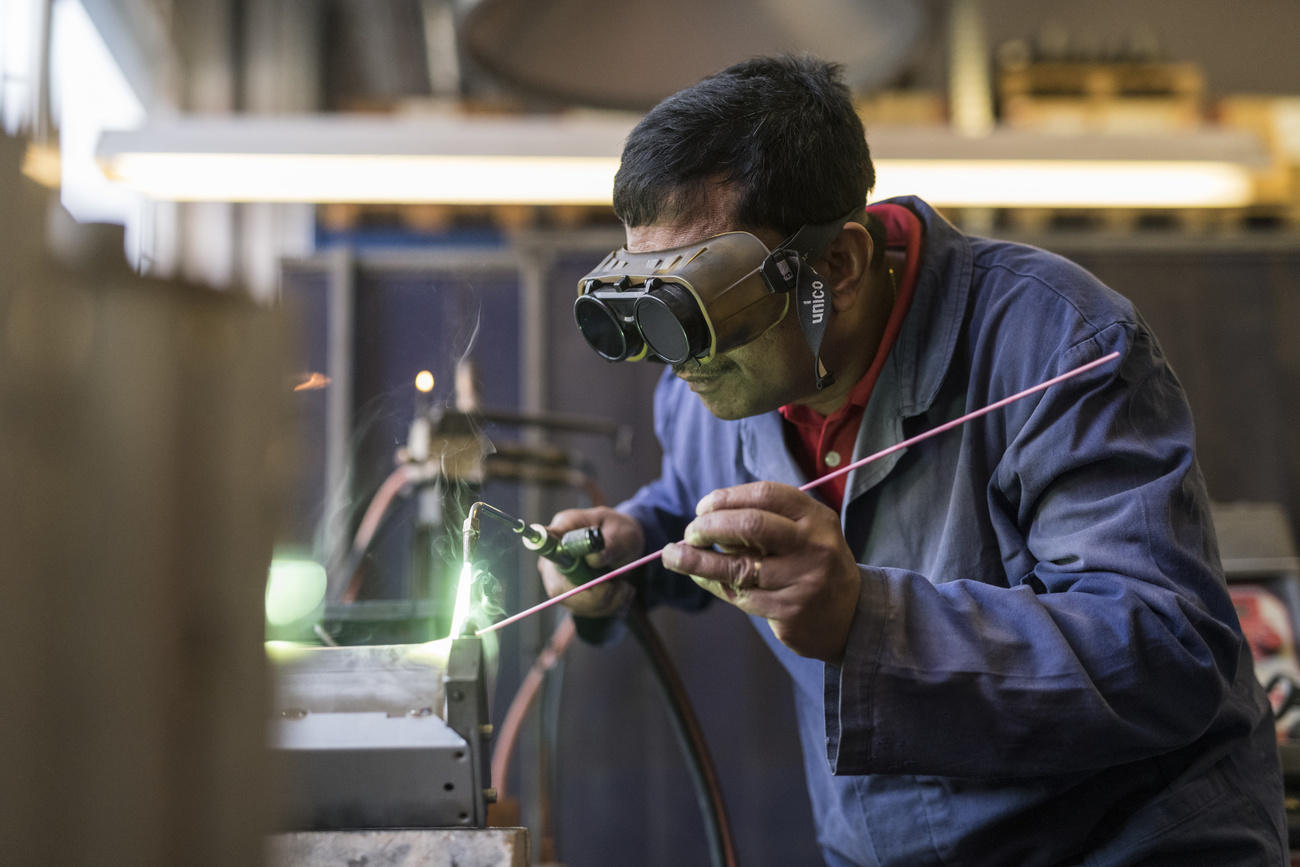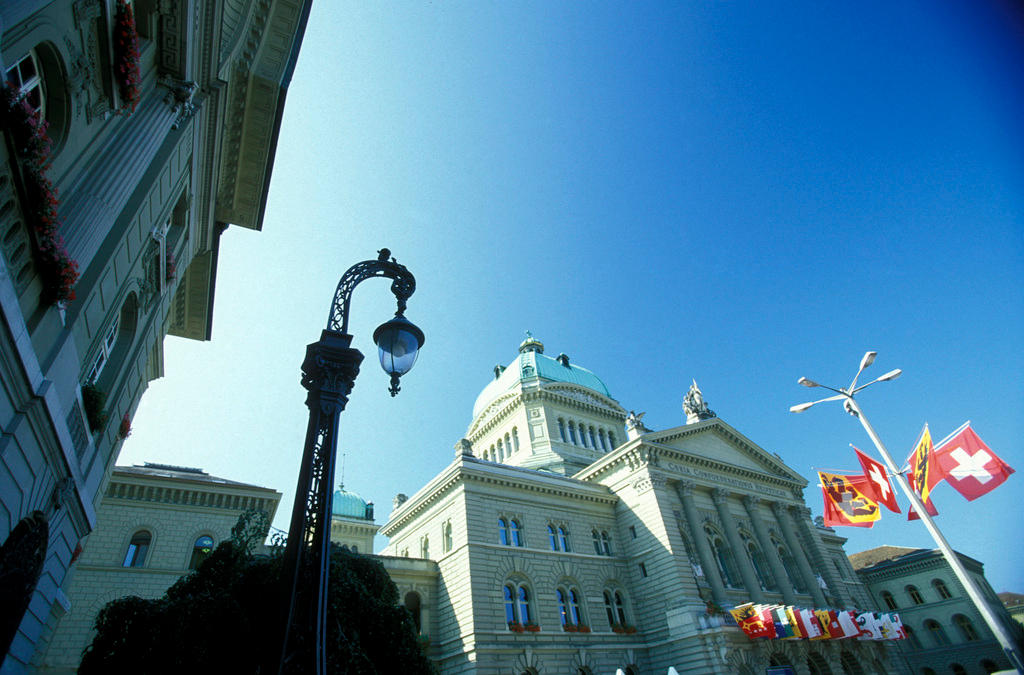Coronavirus tests Swiss political system

In mid-March, as the first cases of Covid-19 crossed the Alps from Lombardy in nearby Italy, Swiss lawmakers abandoned the spring session of the federal assembly. The doors of the neo-classical parliament building in Bern have been closed since on the advice of the health authorities.
On May 4, amid a growing row about the need to keep the country’s democracy functioning, the assembly’s two chambers will reconvene for a four-day emergency session in the less august, but more sanitary, hangers of the Bern expo centre in Wankdorf.

In common with its peers across Europe, Switzerland’s seven-person federal council has enacted sweeping emergency measures to shut down public life across the wealthy alpine federation and halt the spread of the coronavirus pandemic.
But as the economic effects of the lockdown have begun to bite, fractures have emerged in the political consensus that has underpinned them.
“Of course I understand the decision to suspend [the assembly] in March,” said Felix Uhlmann, a professor of constitutional law at the University of Zurich.
“This was a serious crisis and of course there was a lot of pressure for elected members of the assembly to serve as role models. But if you ask me as a lawyer, ‘was it legally correct?’ – I really doubt it.”
Dictatorship?
Switzerland, with its highly devolved federal system and consultative political culture, offers an extreme example of the extent to which the crisis is straining democratic norms – and raising questions of political legitimacy – as countries across Europe plot their exit strategies.

More
Coronavirus: the situation in Switzerland
“In many areas – social welfare, court proceedings, political rights – we have a large gap of legitimacy now,” added Uhlmann, who has been commissioned by Switzerland’s Social Democratic Party to provide an expert opinion on a way forward. “If you want to compare the situation, you really have to go back to the Second World War – there hasn’t been a time when the federal council has had so much power since then.”
Christoph Blocher, the semi-retired but still totemic billionaire godfather of Swiss rightwing populism – and a former member of the federal council – was characteristically blunt in his assessment of its leadership last week: “It is a dictatorship,” he told viewers of his regular internet show. Polling suggests Blocher’s concern is not shared by most Swiss, but the country is unusual in having so far completely suspended its normal democratic process.
In Italy, where the virus first hit Europe, the speaker of the lower house, Roberto Fico, declared early on that parliament would “never close”. In Spain, the congress of deputies must vote to maintain the government’s emergency powers every two weeks. In Germany, the Bundestag has continued its deliberations, albeit with reduced capacity. And in the UK, parliament is meeting in a “hybrid” format, with a reduced number of MPs present in the House of Commons, and others participating digitally.
‘Consensus democracy’
At the crux of Swiss debate is the challenge to its system of “consensus democracy”. In the Swiss model, the federal council is less a political body set apart from the assembly and more an executive committee of it. The so-called “magic formula” apportions its seven seats to four different factions from the assembly. There is no governing party. It meets in secret, and only takes decisions collectively, but in turn it is rarely supposed to do anything without having first made sure it has a consensus of opinion from both chambers.

More
What is federalism?
Special delegations of the assembly are required to approve certain federal council measures, and “control committees” monitor and check its ordinances in real time, overturning those they believe incompatible with the will of the parliament.
“The whole system lives from the model of checks and balances and wisdom of the crowds, and the idea that all groups can influence government policy, in a constant flow of impulses,” said Lukas Gelder, the co-chief of the political pollster and research institute GFS Bern. “It’s not like in other countries, where there’s a government which has a clear programme and there’s a clear opposition. In Switzerland you need all the elements working together all the time.”
Other options
If Bern cannot safely host the assembly in June for its scheduled three week sitting, there may be other options for the assembly to consider.
Authorities in Lucerne have offered to host in full compliance with social distancing rules. That raises the possibility of Switzerland temporarily changing its capital city: according to the constitution, there is no permanent capital. It is, instead, wherever the assembly meets. Lucerne was last – briefly – the country’s capital under Napoleon when he invaded in 1798.
Uhlmann believes a digital solution – like that in the UK – could work. “If you look at the way parliamentary practice has developed, ‘present’ means you don’t have to be actually in the room [in the parliamentary building],” he said. “Even if it’s not in the very wording of the constitution, it is clearly in the spirit.”
Indeed, the effectiveness of any parliament is as much a matter of its members’ engagement as the principles’ underpinning it – a notion underscored by Zurich’s Tages-Anzeiger newspaper in an article responding to Blocher’s complaint about dictatorship.
In the 2012 assembly vote on the epidemic act that underpins the government’s current powers, Blocher – then an elected representative – did not turn up in the chamber to cast his ballot.
Copyright The Financial Times Limited 2020

In compliance with the JTI standards
More: SWI swissinfo.ch certified by the Journalism Trust Initiative












You can find an overview of ongoing debates with our journalists here . Please join us!
If you want to start a conversation about a topic raised in this article or want to report factual errors, email us at english@swissinfo.ch.